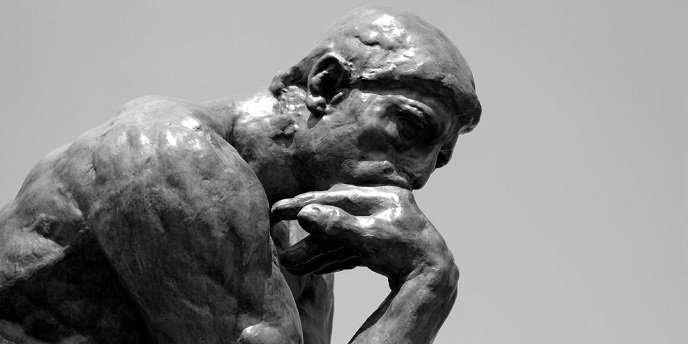There is no philosophical system or epoch that has left no room for man-related issues. Due to various factors - culture, type of society - the perceptions of man have changed. Ancient philosophers (naturiphilosophists) regarded man as a microcosm, as a projection of the parameters of space - similarly as subordinate to the cosmos; they have perceived man as part of the cosmic powers.
Today this perception seems odd. Man is much more, but it is also part of the cosmos and influences it (for example, the magnetic storms that affect people).Beginning with Socrates, ancient philosophers begin to regard man as a dual being, consisting of body and soul. If in the beginning it is part of the cosmos, Socrates later sets the duality of man.
Plato connects the soul with the idea and treats bodily as the dungeon of the soul as the bearer of negative effects for man.
Aristotle treats the soul as a form that can not manifest itself without a body.Medieval philosophy brings not so much the body-soul boundary, but the tension between the flesh and the spiritual man. From this point of view, the idea of the victory of the spiritual over the body is set.The three layers of man are laid - body, soul and spirit. The spirituality of man expresses and finds expression in conscience (consciousness - that is, God is present in man in the form of a message sent by him - a message in the mind of man who comes from God and brings man closer to the divine). The conscience is realized in the so-called "High feelings" - faith, hope, and love. These three feelings, in the highest degree, raise the person above his carnal origin.
There are three branches in Christianity with their respective differences:Orthodoxy is based on Plato's and Plotin's concept of man - in them the human perception emphasizes the beauty and the good, dominating the intuitive beginning of man.While philosophical Catholicism is primarily associated with Aristotle, Augustine, Thomas. Here is a greater emphasis on rationality, and man is treated primarily as a subject of will.Protestantness is based on the philosophy of modern times, in setting priorities in the person's personal beginning. In the modern times the idea arises that the essence of man is in the mind that the clear content of the soul is the consciousness of man.
Another form of conception is formed in the modern times of man as "homosexual", as an active, creative being, which through its activity produces its own way of life. The essence of man consists of everything in his actions. The top of this concept finds its expression in Marx (at Adam Smith). The main thing in society is labor and society is what is, thanks to labor. Man is an atom of society.At the end of the philosophy of the new age a more extravagant idea is formed - that of the superhuman. Higher qualities of man are the will to power, the ability of man to obey the mind. Fantasy and improvisation as human ability come as values.
